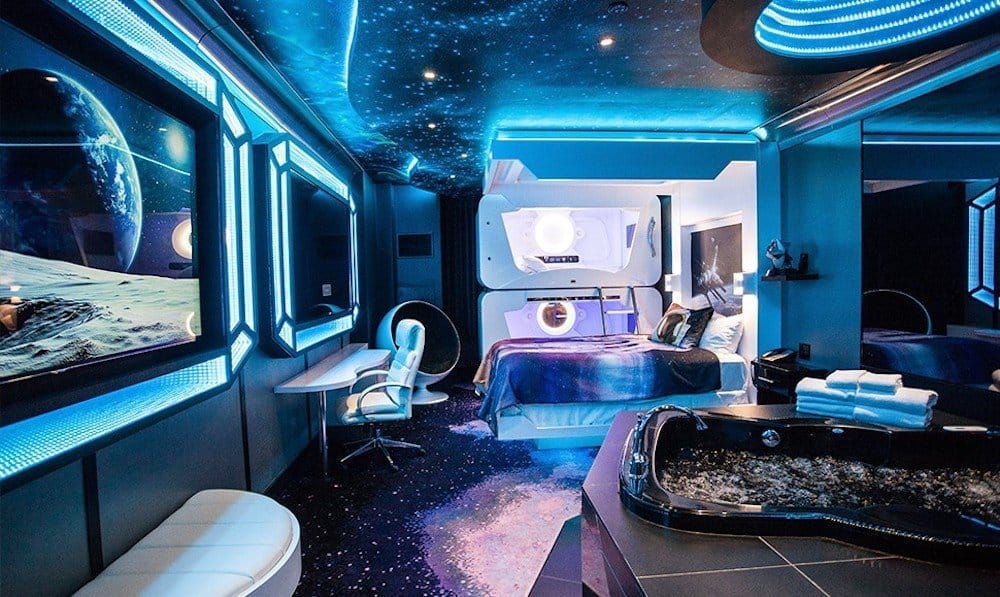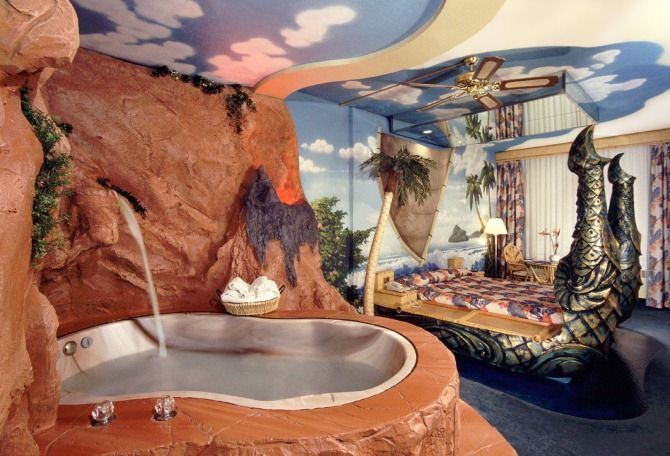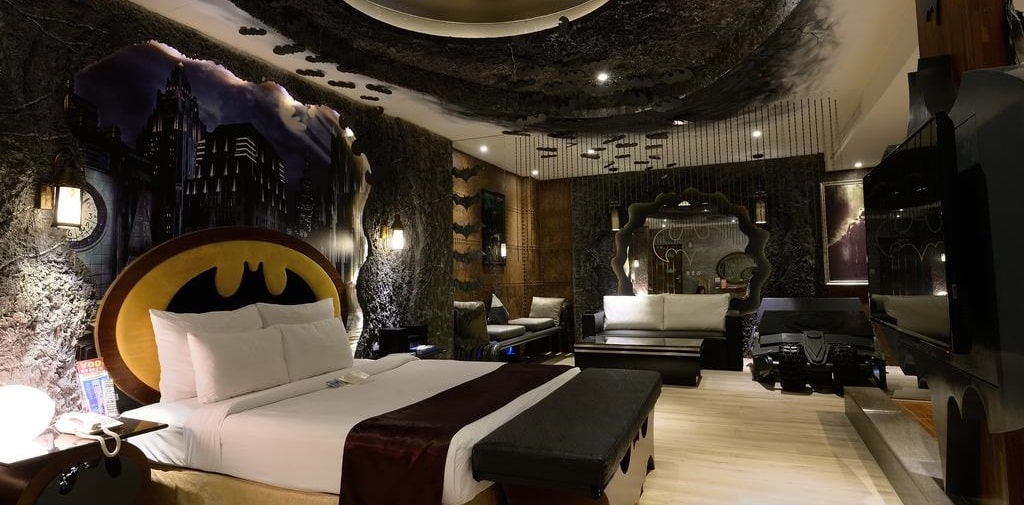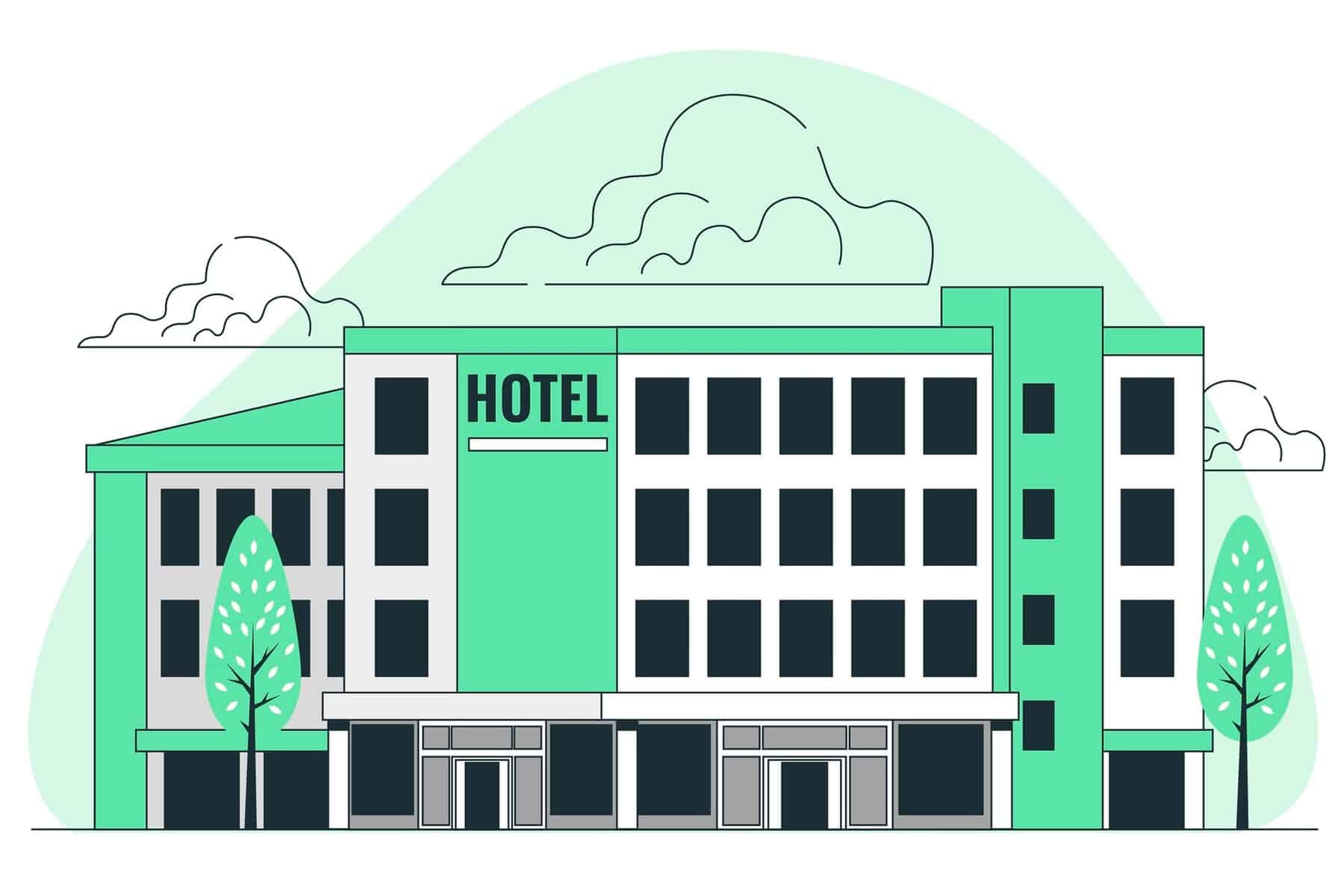How do you get the word out about your hotel in a hotel industry that’s more complex and complicated by the day? Between online travel agencies, SEO, CRM, and more, it’s easy for hotel marketers to feel overwhelmed. But you know that without a solid hotel marketing strategy, your hotel will have significant difficulty reaching its revenue and occupancy goals. Wondering where to begin?
The challenge that most local businesses face is driving foot traffic. The old saying “location, location, location” helps them drive business but hotels need to be much more strategic in the way they market hotel rooms because the amount of passers-by willing to purchase a room is far lower for a hotel than for other small businesses like a bakery or shoe store. So how do hotels get strategic and take control – of online marketing?
In this article, we’ll introduce a plethora of hotel marketing trends and strategies. Even if you’re brand new to hotel marketing, you’ll have a good understanding of the various hotel marketing avenues once you’ve finished reading.
Marketing on Third-Party Channels
We all talk about the elusive guest experience but few understand that the guest experience starts long before check-in. Hotel guests may even start their journey on a channel you can’t control. Perhaps they saw your property on an influencer’s Instagram then searched Google and landed on an OTA. Third-party channels are an essential part of the hotel marketing landscape.
While some hoteliers begrudge third-party channels for charging commissions and eating away at potential direct bookings, there’s no denying that these channels bring massive marketing power and a global user base. It would be nearly impossible for an individual hotel to get the same reach alone, so mastering marketing on third-party channels, like the OTAs, metasearch, and the GDS, is a necessity.
OTAs
If you’ve ever booked travel online, chances are you’ve used one of the big OTAs, or online travel agencies. Popular OTAs like Expedia and Booking.com are marketplaces, just like Amazon, which you can leverage to put your hotel in front of millions of potential guests.
In addition to the big players, the web is home to dozens – if not hundreds – more hotel booking sites that range from broad to niche. Diversifying your distribution strategy to include multiple channels, especially regional sites, is a great way to gain more online visibility.
Of course, no third-party channel is perfect, and dealing with the OTAs’ problems is part of daily life for many hoteliers. Avoiding over-reliance on OTAs (Online Travel Agencies) can be achieved through various strategies, including enhancing SEO (Search Engine Optimization) and implementing direct booking initiatives.
Some alternatives hoteliers can use to OTAs are:
1. Optimizing their Website for SEO – Create high-quality, keyword-rich content on your website, including landing pages, blog posts, and descriptions of amenities.
2. Implement Direct Booking Incentives – Offer exclusive discounts, perks, or packages for guests who book directly through your website.
Highlight the benefits of booking directly, such as lower prices, room customization options, and loyalty program rewards.
3. Utilize Metasearch Engines – Leverage metasearch platforms like Google Hotel Ads, TripAdvisor, and Trivago to increase visibility and drive direct bookings.
Metasearch & Paid Advertising
Besides the OTAs, hoteliers can use various digital advertising strategies and channels, like metasearch, to attract potential guests and drive direct bookings. What is metasearch, anyway? Metasearch sites like Kayak and Trivago aggregate the search results of other OTAs so travelers can easily compare rates across Expedia, Booking.com, and direct sites.
Potential guests click through dozens of windows on their path to purchase, which means having a strong retargeting strategy is essential to capture direct bookings. If a traveler clicks on your website once, your retargeting ads can remind them to return to your site to complete the booking process.
GDS (Global Distribution System)
While the OTAs, metasearch, and retargeting put your hotel directly in front of travelers, the GDS is one of the industry’s most popular B2B platforms. Travel agencies, airlines, and tour operators use the GDS to book rooms for their clients and partners, so hotels seeking to expand their reach or reduce reliance on the OTAs can find success by selling rooms on the GDS.
Reputation Management
No matter where your reservations come from, guests need to trust that your hotel will deliver a good value and experience. Reputation management is the practice of actively building up that trust – whether by displaying your hotel star ratings or by responding to guest reviews on sites like Tripadvisor and Google.
Positioning Hotels by Theme Branding
Did you know you can get a room decorated by your favorite movie or place? Right, they are called “themed hotels” A themed hotel is a type of accommodation that incorporates a specific theme or concept throughout its design, decor, amenities, and overall guest experience.
The theme can be based on various inspirations, such as historical periods, cultural motifs, natural elements, fictional worlds, or even popular entertainment franchises.
Many new players in the hotel industry try to excite people by offering a unique experience and positioning themselves differently in the market. It is indeed very expensive to create a themed hotel and that is the reason many small businesses can’t afford it.
Theme Hotel Market Recent Developments
- In October 2021, Disney announced that it would be opening a new Star Wars-themed hotel at Walt Disney World in Florida. The hotel will offer an immersive, multi-day experience that will transport guests to the Star Wars universe.
- In July 2021, Legoland announced that it will be opening a new themed hotel in New York. The hotel will be located next to the Legoland New York theme park and will feature LEGO-themed rooms, play areas, and activities.
- In August 2021, Karisma Hotels & Resorts announced that it will be opening a new Nickelodeon-themed resort in the Riviera Maya region of Mexico. The resort will feature Nickelodeon-themed rooms, a water park, and a range of family-friendly activities and experiences.
- In 2021, Atari announced that it will be launching a chain of video game-themed hotels in the United States. The hotels will feature video game-themed rooms, immersive experiences, and a range of amenities, including e-sports arenas and gaming lounges.
Source: Skyquestt
To market a themed hotel effectively, focus on highlighting the unique theme experience through targeted marketing strategies.
For example, if you have a space-themed hotel, you can create theme events, create theme photoshoots, collaborate with thematic places, and utilize paid Ads to reach more people.
Examples of theme hotel rooms

Space themed room


Batman theme room
Improving the Performance of Owned Channels
Though third-party channels play an important role in the hotel marketing space, let’s not forget about your own direct channels. Your hotel’s website and email communication are both excellent ways to spread brand awareness, gain loyalty, and potentially even raise your RevPAR by increasing direct bookings. What do you need to know to boost your hotel’s owned channels? Let’s talk.
Hotel Website Design, SEO & Content Marketing
Driving your hotel website’s performance is possible when you focus on four key categories:
- Website design: If your hotel’s website isn’t attractive and user-friendly, potential guests are going to click off your site quickly! We’ve gathered some resources to help you promote your property with a modern, competitive website.
- If you’re building your site for the first time or upgrading an old one, our inspiring list of hotel website designs is a great place to start. These eye-catching designs will get the creative juices flowing.
- No matter which stage of website design you’re at, you’ll want to read up on 6 hotel website design lessons from leading e-commerce companies like Amazon and Zappos. Tips include adding a FAQ section to the booking page and organizing your room types in a grid layout.
- For websites with a lot of content, a content management system can eliminate stress and disorganization related to uploading text, images, and videos. Many content management systems are also easy enough to use that hoteliers and marketers with limited technical know-how can use them – no expensive web developers needed!
- Conversion optimization: Once you’ve invested in a beautiful website, make sure your website is effectively and efficiently converting guests. Conversion measures the rate of website visitors who complete the booking process.
- One of the best ways to improve your conversion rate is to implement a streamlined, user-friendly booking engine. But booking engine selection is no easy task; you’ll want to consider whether it’s optimized for mobile devices, compatible with your PMS and other systems, and within your budget.
- SEO: Many potential guests will find your hotel’s website through a search engine like Google or Bing. That’s why it’s a good idea to continuously work on your website’s SEO, or search engine optimization. SEO includes countless strategies for ranking higher in the search results, appearing in searches for popular keywords, and ensuring your website’s search results listing looks enticing.
- A key component of SEO involves the content and formatting of your own website. On-page SEO helps search engines “read” your website so that they know in which search results your site should appear. On-page SEO strategies include using headings, adding links, and eliminating glitches.
- Some hoteliers use paid advertising to snag website visitors, but you can certainly increase website traffic free of charge – if you put in a little extra effort. Publishing high-quality blog articles, posting on social media, and engaging with review sites are all great ways to get direct website traffic for free.
- Content marketing: Content is one of your most powerful tools in the digital marketing ecosystem. Popular blog posts or informative local guides are great ways to showcase your property to potential guests. Have writers’ block? Check out some hotel blogging strategies that you can try today.
Email Marketing & Hotel CRM
But your hotel website isn’t the only to engage with your guests; email marketing can deliver fantastic results, especially among your most loyal guests.
Before diving into email marketing, you’ll want to have a hotel CRM (customer relationship management) system in place to store and track data about your guests. These systems help you gain insight into who your guests are and what matters to them so you can craft relevant email marketing strategies.
Email marketing for hotels can sound like a daunting task if your only tool is Gmail or Outlook. Hotel Marketing Strategies
Although hotel marketing has plenty of industry-specific nuances, it’s helpful to have a basic understanding of general marking principles. Ready for some Marketing 101? Let’s go.
The first step to any type of success is to set goals. But all goals are not created equal. SMART Goals, which are Specific, Measurable, Achievable, Relevant, and Time-bound, will add clarity to your marketing plan.
Speaking of relevancy, your marketing goals and strategies should adapt based on the types of travelers you want to target. For example, if you’re targeting business travelers, families, or Generation Z, your marketing strategies for each group should be unique.
A key component of your overall marketing strategy is your content marketing strategy, which includes your blog articles, social media posts, YouTube videos, Pinterest pins, and more. Employing some creative content strategies can transform your hotel’s online presence.
As you’re setting up your strategies, you’ll want to form good hotel marketing habits. Like brushing your teeth, it’s a good idea to make researching market trends, collaborating with other hotel departments, and learning about local events part of your daily routine.
Hotel Marketing Strategies for 2024
In today’s rapidly evolving hospitality industry, hoteliers must recognize the importance of leveraging the latest marketing strategies and tools to thrive amidst fierce competition. The digital landscape, powered by search engines and social media platforms, has transformed the way potential guests discover and book accommodations. Let’s explore the reasons why integrating these elements into a comprehensive hotel marketing strategy is crucial:
- Increased Online Visibility: Effective search engine optimization (SEO) techniques enhance a hotel website’s visibility in search engine results, ensuring that it appears prominently when potential guests search for relevant keywords. This improved online visibility boosts organic traffic and drives direct bookings.
- Targeted Marketing Campaigns: Leveraging social media and email marketing enables hoteliers to precisely target their desired audience segments. By tailoring marketing efforts to specific demographics, hotels can effectively communicate their unique value propositions, enticing potential guests to choose their property over competitors.
- Direct Bookings and Reduced Dependence on OTAs: Implementing a robust digital marketing plan empowers hotel businesses to drive direct bookings through their own websites and booking engines. By reducing reliance on online travel agencies (OTAs), hoteliers can maintain better control over their revenue management and avoid paying hefty commissions.
- Influencer Partnerships and User-Generated Content: Collaborating with influential personalities and leveraging user-generated content on social media enhances brand awareness and credibility. Influencers can help showcase the hotel’s unique features and experiences, while user-generated content serves as authentic testimonials that resonate with potential customers.
- Seamless Booking Experience: A user-friendly and functional hotel website with a smooth booking process enhances the guest experience, leading to increased conversion rates. Features such as online reviews, high-quality visuals, and detailed room descriptions contribute to a positive user experience and inspire confidence in potential guests.
- Strategic Partnerships with Local Businesses: Collaborating with local businesses and attractions allows hotels to offer exclusive packages and enhance the overall guest experience. By forging partnerships, hoteliers can tap into a broader customer base and leverage the marketing reach of their collaborators.
- Enhanced Revenue Management: Effective digital marketing strategies can positively impact a hotel’s revenue management efforts. By implementing tactics like upselling, loyalty programs, and targeted promotions, hoteliers can maximize their revenue potential and optimize occupancy levels.
- Data-Driven Decision Making: Utilizing tools like Google Analytics provides valuable insights into website performance, user behavior, and the effectiveness of marketing campaigns. These metrics allow hoteliers to make informed decisions and continuously refine their marketing efforts to achieve optimal results.
- Adaptation to Changing Consumer Behavior: The COVID-19 pandemic has significantly altered consumer behavior and expectations. By embracing digital marketing and leveraging online channels, hotels can cater to the evolving needs of business travelers and leisure guests, ultimately boosting their competitiveness in the market.
Integrating the latest marketing tools and strategies into a comprehensive hotel marketing plan is essential for hotels to enhance brand awareness, drive direct bookings, adapt to changing consumer behavior, and ultimately increase revenue. By embracing digital marketing, optimizing online visibility, and prioritizing guest experiences, hoteliers can position their properties for success in the dynamic and competitive hospitality industry.

